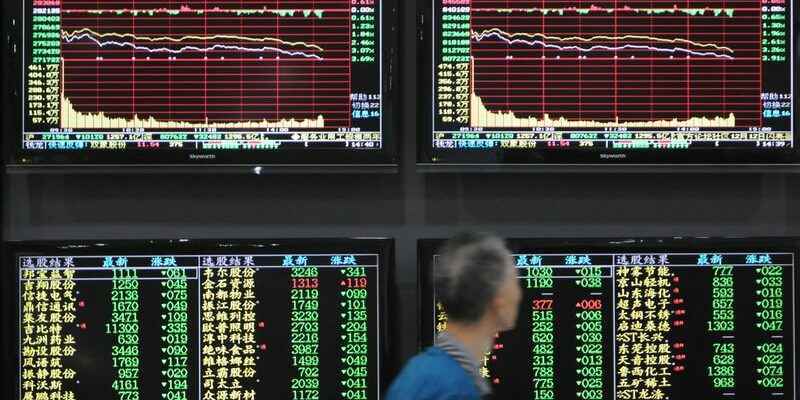According to Refinitiv data, 204 of the 242 dollar-denominated bonds issued by Chinese property companies are trading in troubled territory, below 50 cents on the dollar, hammering funds and limiting patience to wait for a rally.
With angry buyers of unfinished apartments boycotting mortgage payments, new sales and plummeting home prices, and rescue efforts that so far have done little to relieve developers’ cash flow, many of them choose to cut their losses.
The five largest Asian high-yield funds reduced their holdings of Chinese property bonds by 16.4% at the end of June, from 27.6% at the end of last year, according to Morningstar.
The BGF Asian High Yield Bond D2 USD fund, for example, reduced its exposure to Chinese real estate bonds to 14.7% at the end of June, from 27.1% on December 31.
The PIMCO GIS Asia High Yield Institutional USD and Fidelity Asian High Yield A-Acc-EUR funds also reduced their positions to 11.9% and 22% from 22% and 31.7% respectively.
“As the liquidity crisis escalates…many people are now reluctant to hold on to their mortgage bonds,” said Kunal Sawhney, managing director of research firm Kalkine Group.
“Even major institutional investors are reducing their positions in Chinese dollar high yield bonds, as investor confidence has begun to erode since the onset of the crisis.”
Patrick Ge, research analyst at Morningstar, said a combination of lower bond supply and the exit of defaulting bonds from indexes also contributed to the reduction in holdings of Chinese property bonds.
“We’ve seen several managers diversify away from Chinese real estate and find opportunities in other high-yield Asian sectors such as Indian renewables companies and the Indonesian real estate space,” he said. declare.
Offshore bonds have fallen 59.4% on average this year and Bank of America has calculated a total of $52 billion in defaults. Exposed mutual funds suffered heavy losses.
The UBS (Lux) BS Asian High Yield $ K-1-acc fund has fallen 29% this year, while HSBC GIF Asia High Yield Bond XC and Fidelity Asian High Yield A-Acc-EUR have lost around 24% and 21 %, respectively.
In its efforts to revive the economy, China has cut its benchmark lending rate and officials have repeatedly pledged additional aid.
However, analysts have said that real financial support for developers is limited, and that without a reversal in market confidence, they will not be able to resolve cash flow problems.
“We need to see a recovery in pre-sales and subsequently a reopening of the capital market to conclude a turnaround in the sector,” said Agnes Wong, head of APAC credit strategy at BNP Paribas.
However, she said it would be difficult for things to get worse. “We see a limit decline from here,” she said.
